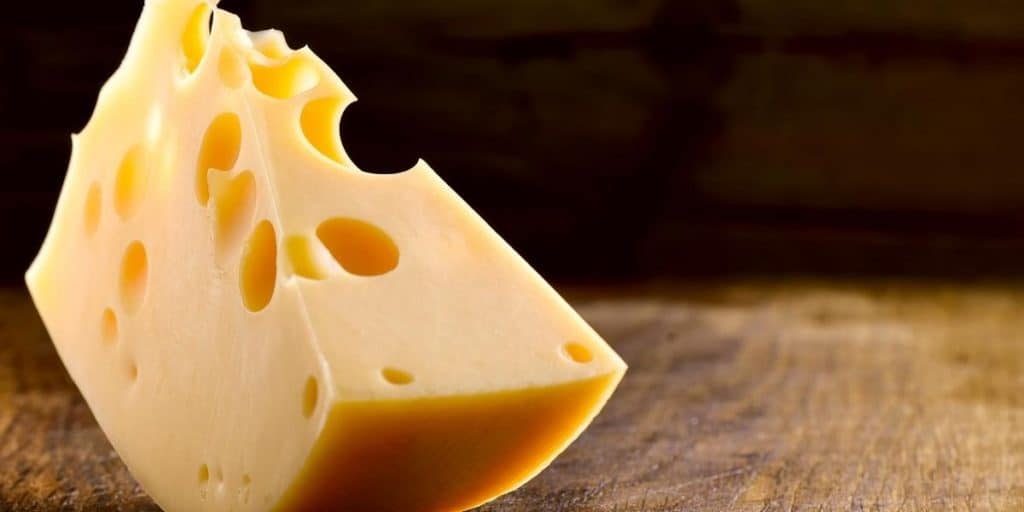When we think of who should be eating cheese, chickens are mostly not on that list. Cheese is a typical delicacy among other animals, particularly mice. Nevertheless, can chickens eat cheese?
Giving your chicken a variety in their treats is an excellent way to keep them happy and keep the produce coming. If you’re looking to introduce a unique treat to your cluckers, give cheese a try.
One advantage of keeping chickens is that they can eat almost anything. Rearing healthy chickens, however, requires you to gauge just what is right for them and what’s not. Cheese chicken treats is a wonderful way to indulge them every once in a while.
Cheese is packed with Vitamins and trace minerals which will help your chickens to grow strong. However, It is fatty and can be harmful in large quantities if fed to your backyard chickens too often. Feed cheese or dairy products to your chickens and hens in small portions as a treat once or twice a week maximum.

Table of Contents
Why Cheese?
Cheese is laden with vitamins A, D, and K that helps in the overall health of the chickens. Cheese also contains trace minerals such as calcium, zinc, and magnesium that improve the bird’s immunity and bone strength. The phosphorus present in cheese helps prevent against weak eggshells.
The healthy proteins in the form of casein help lower chickens’ blood pressure and upsurge the absorption of minerals. If your chickens are having trouble absorbing calcium or any other mineral, give them a cheese treat.
If you’re having low weight gain problems with your chickens, giving them some cheese is an excellent way to increase their weight healthily. The calcium in cheese makes the chicken’s bones strong and increases the quality of eggs and meat. Adequate calcium also makes strong eggshells. Besides, cheese is a yummy snack; the birds might love it just as much as you do.
What Cheese?
All cheese is not the same; it differs depending on how it’s made and the source of milk. Goat cheese is the best one to feed your chickens. Goat cheese is better than cheese made from cow’s milk because it has less lactose and low sodium. It also contains fewer fats that are easier to digest.
Shredded cheese is also better than block cheese, as it’s easier for the chickens to pick and eat. A mozzarella is a good option when you’re looking for shredded cheese. It’s also less acidic and can be served either plain or with another treat.
If you are looking for a soft cheese to mix with another treat, cottage cheese will be the best option. However, cottage cheese should not be given on its own as the chickens might not be able to eat it well because it’s quite mushy.
Can chickens eat moldy cheese? Moldy cheese, also known as blue cheese, is made from culture penicillin, which gives it its colorful blue or green streaks. Moldy cheese is great for your chickens because of its antibacterial properties that increase the chickens’ immunity.

Cheese Drawbacks
While cheese is healthy for chickens, feed it to them in moderation. Giving your birds cheese every so often is all right, but do not make cheese a frequent treat for them.
Cheese is quite fatty and can render your chickens obese if given in large quantities. The fattiness also makes it hard to digest and is a little tough on their digestive systems. Cheese puffs are particularly fattening, feed the chicken very sparingly if this is the only cheese you have at your disposal.
Other Dairy Products for Chickens
Dairy products are not conventional food sources for chickens. You should give dairy products to your birds very sparingly, if at all. The chickens’ digestive system is not designed to absorb dairy products in large quantities. Dairy products contain sugar in the form of lactose. Chickens lack the enzymes responsible for digesting this sugar.
If chickens have a high, prolonged intake of dairy products, they may develop gastrointestinal issues like diarrhea and abdominal pain. Calcium is a common nutrient in dairy products. If you’re considering giving your chickens milk due to the calcium, it’d be better to source the calcium in alternative feeds.
Crushed oyster shells are a great alternative for calcium supply for your chickens. Sometimes, however, you may want to pamper the little cluckers with a dairy product. Here are the safer products for your chickens and how to give them.
Milk
Milk is almost ninety percent water, and chickens can consume it without many problems. Skimmed low-fat milk with a fat content of less than six percent is preferable. Use goat’s milk as opposed to cow’s milk as it’s digested better by chickens, and give it raw as opposed to pasteurized. When the milk is raw, all the enzymes required to digest it are still present. You can also purchase lactose-free milk for your chickens.
Yogurt
Yogurt is another dairy product that chickens can enjoy in limited portions. Yogurt contains healthy bacteria that help with digestion. Ensure that the yogurt is plain and not sweetened. Greek plain yogurt is the best for chickens as it contains fewer sugars than regular yogurt.
How to feed the chickens with milk and yogurt
Your chickens will most likely not drink the milk if it’s just left out in an open feeder. Dairy products spoil pretty fast and may end up making the birds sick.
The best way to feed your poultry these dairy treats, is by mixing them in other meals. Pour some milk in oats or other cereal that you are feeding the chickens and let them enjoy the hidden treats.
You can also sprinkle some meal worms over Greek yogurt. This will give them the incentive to eat the dairy products that they may otherwise leave untouched.
Conclusion: Can chickens eat cheese?
Diversifying chicken treats is useful for tapping nutrients from all possible corners. Cheese, in whichever form, is a treat for the birds on days when you want them to have a break from broccoli and lettuce.
Chickens know what is right for them; if you give them a dairy product treat and they seem to ignore it, let them be. Even if they end up liking them, do not make dairy products treats a habit.




